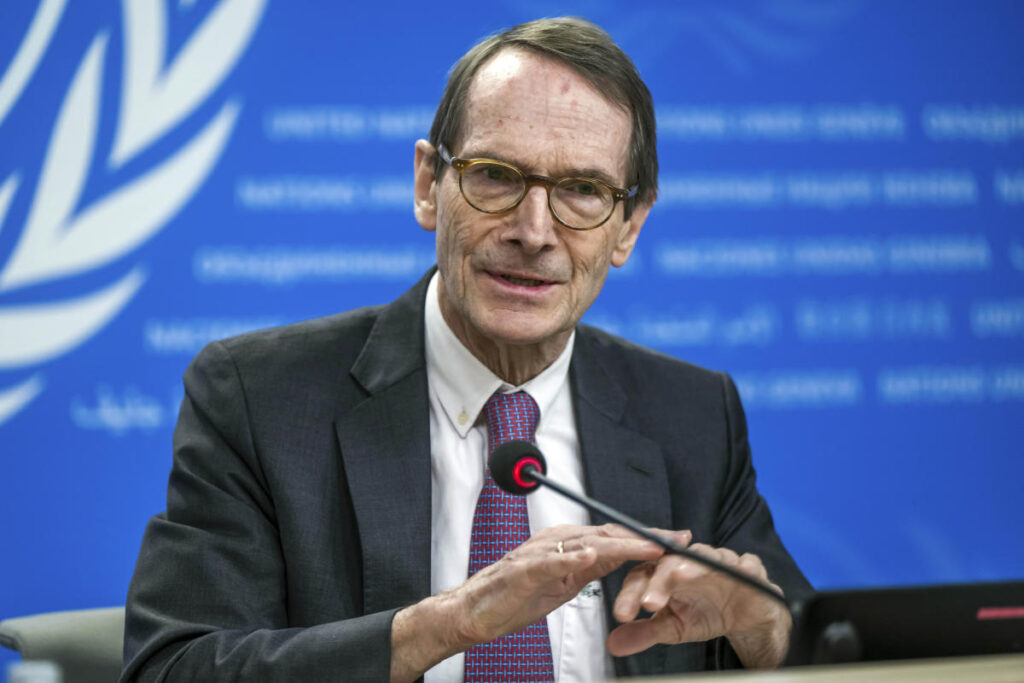In recent findings made public by U.N.-backed human rights experts, the systematic and widespread use of torture by Russian authorities against Ukrainian civilians and prisoners of war has been classified as a crime against humanity. Erik Møse, the chair of the independent commission investigating human rights violations in Ukraine, announced that the panel has consistently identified Russia’s actions as war crimes. The commission’s latest report indicates that torture has been carried out across all Ukrainian regions occupied by Russian forces, as well as in detention facilities within Russia. This underscores the extensive scope of human rights violations linked to the ongoing conflict.
The independent commission, formed by the Geneva-based U.N. Human Rights Council, is tasked with investigating these violations. Although the Russian U.N. Mission refrained from commenting on the findings, the commission highlighted its role in gathering evidence alongside Ukraine’s prosecutor general and the International Criminal Court. This collaborative effort aims to address war crimes and crimes against humanity occurring in Ukraine as a result of the conflict. Commission members examined a range of detention centers—41 in total—ranging from improvised facilities to established prisons in nine occupied regions of Ukraine and eight locations in Russia, revealing consistent patterns of abuse.
Among the harrowing findings detailed by the commission was the use of sexual violence as a method of torture. Commission member Vrinda Gover stated that detainees, including most prisoners of war, reported horrific experiences such as rape, prolonged forced nudity, and invasive body searches. These acts of sexual violence not only inflict immediate physical harm but also result in long-lasting psychological trauma for victims. The commission’s investigation further revealed that detainees faced a violent “admission procedure,” designed to intimidate and demoralize them, characterized by practices intended to scare, humiliate, and coerce compliance.
The commission’s inquiry also uncovered the prevalence of surveillance measures within detention facilities, aimed at monitoring detainees. Incidents of severe collective punishment for any perceived infractions were documented, exacerbating the already harsh conditions. Interrogations were reportedly accompanied by extreme violence, further solidifying the brutal environment that detainees were subjected to. The systematic nature of these abuses indicates an organized approach, with oversight and enablement at various levels of authority within the Russian security forces and detention systems.
Pablo de Greiff, another member of the commission, disclosed that evidence points to a clear organizational structure within Russia that facilitated and normalized the torture of detainees. It was revealed that higher-ranking Russian authorities either facilitated these abuses or failed to intervene, demonstrating a troubling complicity in the state’s coordinated policy of torture. This systematic operation was not limited to Russian territory but was mirrored in the detention facilities established in regions of Ukraine occupied by Russian forces.
Ultimately, the commission concluded that these findings substantiate claims that the Russian authorities engaged in a coordinated policy of torture, classifying these actions both as war crimes and as crimes against humanity. The implications of these findings are profound, as they highlight the urgent need for accountability for widespread human rights violations. The investigation’s work, alongside ongoing efforts by Ukrainian officials and international legal bodies, seeks to ensure justice for victims and restore adherence to international human rights standards in conflict situations.

